17733 Results for “”
-
“Acting Is Truly Not Just About the Language You Speak”: Editor Linda Jildmalm on Hatching

Hatching, a Finnish film that combines satire of modern “lifestyle” blogging with elements of coming-of-age films and body horror, follows a socially isolated pre-teen girl, Tinja, as she discovers and then nurtures the egg of a wounded bird. The egg eventually hatches, and Tinja christens her new best friend Alli. Editor Linda Jildmalm explained how she edited a film shot in a language she does not speak and worked to preserve the director’s vision. Filmmaker: How and why did you wind up being the editor of your film? What were the factors and attributes that led to your being hired […]
by Filmmaker Staff on Jan 22, 2022 -
“We Can’t Afford to Waste Half of the Talent in Our Industry” | Hanna Bergholm on Hatching

The last two years have prompted much contemplation and reconsideration of the reasons why we make our films as well as the ways in which we make them. What aspect of your filmmaking—whether in your creative process, the way you finance your films, your production methodology or the way you relate to your audience—did you have to reinvent in order to make and complete the film you are bringing to the festival this year? We shot Hatching in summer-autumn 2019, so luckily we avoided the pandemic during our shoot. The pandemic affected our post-production in a way; we had to do […]
by Filmmaker Staff on Jan 22, 2022 -
“It’s Easy to Get Tunnel Vision on a Project Without Seeking Out Other Forms of Art”: Editor Catrin Hedström on Sharp Stick

Sharp Stick, Lena Dunham’s return to feature filmmaking after 12 years, is an intimate, character-driven film focusing on Sarah Jo, a naïve, woman in her mid-twenties embarking on an affair with the father of the child for whom she is a caretaker. The film touches on ideas of self-image and sex positivity, but remains close to its protagonist. Editor Catrin Hedström discusses keeping that focus by cutting scenes down to the essentials and how she brought out the complexity of the script’s characters. Filmmaker: How and why did you wind up being the editor of your film? What were the […]
by Filmmaker Staff on Jan 22, 2022 -
“You Have to Find a Balance Between the Eroticism and the Reality”: Ashley Connor on Sharp Stick


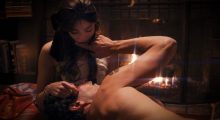
For Sharp Stick, her first feature film since 2010’s Tiny Furniture, Lena Dunham relates the adventure of Sarah Jo, a 26-year-old virgin, as she woos the father of Zach, an intellectually disabled child for whom she cares. As the film unfolds, ideas about trauma, sex positivity and body image begin to emerge. Cinematographer Ashley Connor discusses shooting the film on an accelerated timeline and how she captured the feeling of infatuation in the visuals. Filmmaker: How and why did you wind up being the cinematographer of your film? What were the factors and attributes that led to your being hired […]
by Filmmaker Staff on Jan 22, 2022 -
“I Think a Lot of People Are Going to Able to Find Parallels to Their Own Love Stories”: Editor Robert Martinez on Lucy and Desi

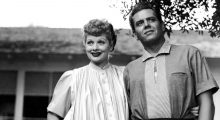
Lucille Ball and Desi Arnaz are one of the most beloved couples in showbiz history, and for many, it isn’t clear where the real people end and the Ricardos of I Love Lucy begin. Amy Poehler illuminates how those boundaries manifested and moved in Lucy and Desi, her documentary on the two stars. Below, editor Robert Martinez explains why he fought the urge to include extended I Love Lucy clips and kept the focus on the love story. Filmmaker: How and why did you wind up being the editor of your film? What were the factors and attributes that led to […]
by Filmmaker Staff on Jan 22, 2022 -
“Capturing the Scale of the Amazon Rainforest Is an Impossible Task”: DP Alex Pritz on The Territory

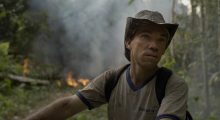
The Territory takes viewers deep inside the Brazilian Amazon, allowing them to bear witness to the ongoing conflict that has pitted Indigenous inhabitants against settlers looking to capitalize on the land. The film captures a pair of young leaders and their mentor, who defend the land with their lives, as well as settlers hoping to establish their own homestead, including those who engage in clear-cutting on their own. Director-cinematographer Alex Pritz explains how the film’s visual style distinguishes the different perspectives, his collaboration with an Indigenous cinematographer, and how his crew unexpectedly found themselves recording a settler burning down the […]
by Filmmaker Staff on Jan 22, 2022 -
“COVID Helped Us Discover a New Way to Create This Film” | Alex Pritz, The Territory

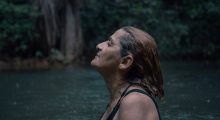
The last two years have prompted much contemplation and reconsideration of the reasons why we make our films as well as the ways in which we make them. What aspect of your filmmaking—whether in your creative process, the way you finance your films, your production methodology or the way you relate to your audience—did you have to reinvent in order to make and complete the film you are bringing to the festival this year? The Territory is a film about land conflict on Indigenous territory in the Brazilian Amazon, which has been co-created with the Uru-eu-wau-wau community. With the arrival of […]
by Filmmaker Staff on Jan 22, 2022 -
Sundance 2022 Critic’s Notebook: Mija, Mars One, Emergency

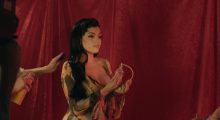
When does a virtual film festival start? The types of film screenings, audience accommodations, parties, panels, social spaces, diversity and development programs, residencies, labs, medical procedures and contingency plans film festival organizers are responsible for keep spiraling. The International Film Festival Rotterdam warned all attendees in late December that its 2022 edition would be entirely virtual, while the Berlinale recently confirmed the festival’s focus on in-person screenings would proceed as planned next month, without exception for press, but with a slightly expanded, all-virtual European Film Market. In this climate, Sundance announced a scant two weeks before the festival’s opening night that […]
by Abby Sun on Jan 22, 2022 -
“My Hope Is That These Amazonian Voices Are Heard”: Editor Carlos Rojas Felice on The Territory

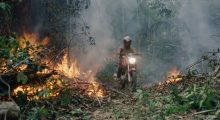
The Territory, which highlights ongoing conflicts in the Amazon between its Indigenous inhabitants and Brazilian politicians and businessmen, was co-produced by the Uru-Eu-Wau-Wau community. The film thus grants first-hand views of the conflict, from the frequent invasions to the Indigenous peoples’ establishing of their own media team to broadcast their side of the story. Editor Carlos Rojas Felice explains how he retained the film’s environmentalist themes while highlighting the opposing views of the various players. Filmmaker: How and why did you wind up being the editor of your film? What were the factors and attributes that led to your being […]
by Filmmaker Staff on Jan 22, 2022 -
“It’s Always About Time and Not Having It”: DP Greta Zozula on Summering


With Summering, James Ponsoldt wanted to make a film that his young daughter would appreciate, and the result is a coming-of-age story about four girls planning one final weekend of fun before middle school. They unexpectedly make a discovery in the nearby woods that they keep to themselves, and from there imagination and reality collide in magical realist fashion. Below, cinematographer Greta Zozula explains how she managed the narrative’s tension between magic and realism and how the crew managed to make difficult scenes work with limited time. Filmmaker: How and why did you wind up being the cinematographer of your film? […]
by Filmmaker Staff on Jan 22, 2022


